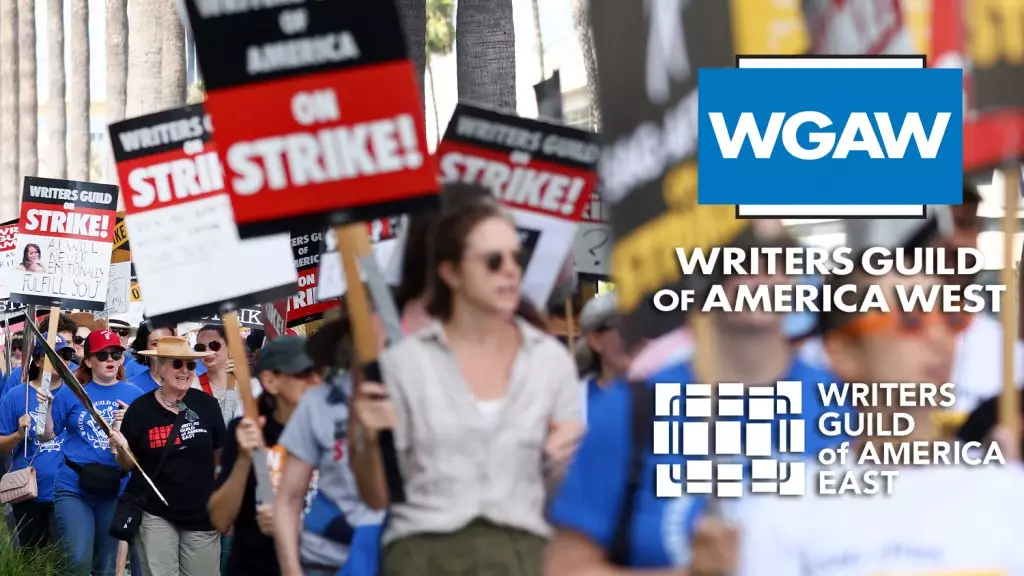After what felt like an eternity, the Writers Guild strike will officially come to an end at 12:01 am on Wednesday. Finally, members of the guild can get back to work, but not without a careful consideration of the agreement reached with the studios and streamers. The strike lasted for an excruciating 148 days, just shy of becoming the longest strike in the guild’s history. Let us take a closer look at the details of the agreement and what it means for the writers.
Upon reaching a tentative agreement with the studios and streamers on Sunday, the Writers Guild’s Negotiating Committee, WGAW Board, and WGAE Council unanimously voted to recommend the agreement to the membership. However, before the agreement can be finalized, it must go through a ratification vote from both guilds’ memberships. This crucial vote will take place from October 2nd to October 9th.
The proposed agreement would cover the period from September 25, 2023, through May 1, 2026, ensuring stability for the coming years. Thankfully, the guild has allowed members to return to work while the ratification process takes place. However, there is still a slim chance that the agreement may be rejected by the members, which would rekindle the strike. Writers must keep this possibility in mind as they proceed.
One important aspect of the agreement is the minimum salaries for writers, where the Writers Guild achieved pay raises similar to those obtained by the Directors Guild, but without going on strike. The Directors Guild secured annual pay raises of 5%-4%-3.5% over the contract’s lifetime, totaling a compounded increase of 13% over three years. Additionally, the Directors Guild gained an extra 0.5% to fund a new parental leave benefit. In comparison, the Writers Guild managed to secure raises of 5%-4%-3.5%, with certain exceptions based on established industry patterns.
It is worth noting that going into the negotiations, the Writers Guild had initially asked for higher pay increases of 6%-5%-5%, resulting in a compounded raise of 16.87% over three years. The offer presented by the Alliance of Motion Picture and Television Producers (AMPTP) just before the strike began fell significantly short at only 4%-3%-2%. It was only after August 11, when the AMPTP matched the Directors Guild’s offer, that the Writers Guild finally managed to secure a more satisfactory agreement.
The negotiations centered around several key issues, including wage increases, streaming residuals, protections against Artificial Intelligence abuse, and minimum staffing and duration of employment in TV writers’ rooms. The Negotiating Committee highlighted these accomplishments and emphasized the unity and determination of the membership that brought the companies back to the negotiating table. It is essential to recognize the significance of the writers’ willingness to take action and endure the hardships and uncertainties of the strike.
Before the agreement could move forward, the guild and the AMPTP worked on finalizing their Memorandum of Agreement, which provides a detailed account of all the deal points. Afterwards, the WGA Negotiating Committee recommended the agreement to the Board and Council, who, in turn, unanimously voted in favor of it. As part of this process, the Board and Council also lifted what the guild terms a “restraining order,” allowing writers to return to work during the ratification vote. However, it is important to note that the final determination on contract approval still rests with the membership.
As the ratification vote approaches, the guild is taking steps to ensure that members are well-informed about the agreement. Contract informational member meetings have been scheduled to provide current members with the opportunity to hear firsthand from the Negotiating Committee, Board, and Council. These meetings, to be held in New York City and Los Angeles, will include discussions and a chance for questions before the vote takes place. Additionally, virtual Zoom meetings have been scheduled for those unable to attend in person.
The end of the Writers Guild strike is a cause for both relief and reflection. While the agreement brings important gains and protections for writers, it also highlights the need for unity, determination, and the willingness to take action. As members prepare to cast their votes, they must carefully analyze the agreement’s details and consider its implications for their careers and the future of the industry. The strike may be over, but the path towards a fair and sustainable working environment for writers continues.


Leave a Reply